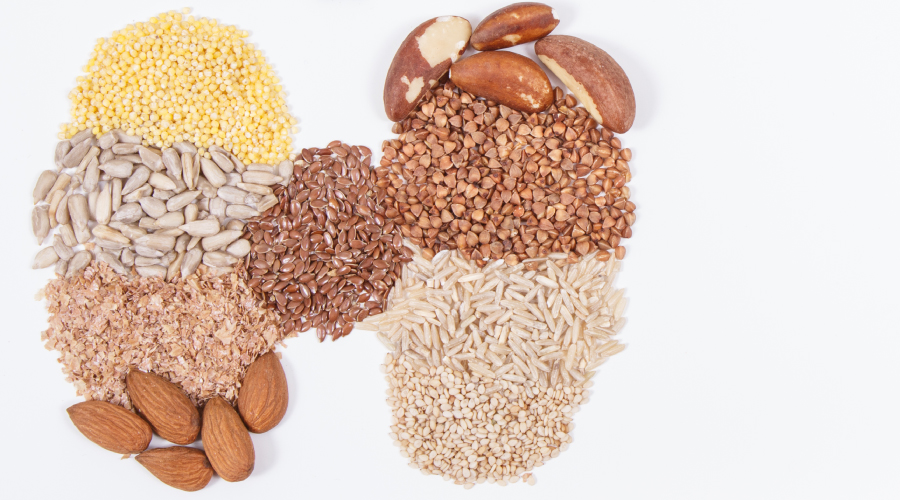

Have you been dealing with hypothyroidism? This condition happens when your body is not able to make enough thyroid hormones. People with underactive thyroid have symptoms such as fatigue and weight gain. Healthcare providers give medications and recommend a well-balanced diet for hypothyroidism treatment.
This article explores the best dietary choices and foods to avoid when dealing with hypothyroidism.
Foods that have iodine, zinc and selenium are best for people with hypothyroidism. Omega-3 fatty acids can also help in this case. Also, avoid eating refined and processed foods, trans fats, and excessive caffeine and alcohol.
What is Hypothyroidism?
When the levels of thyroid hormones such as triiodothyronine (T3) and thyroxine (T4) are low, you may have hypothyroidism. These hormones help regulate metabolism and other bodily functions. The main reason for it is an autoimmune disorder called Hashimoto’s thyroiditis. However, hypothyroidism can also happen due to thyroid inflammation, medications, iodine deficiency, radiation therapy, or surgical removal of the thyroid gland. This condition can also affect cholesterol levels, heart health and fertility. Consulting a doctor, if you have hypothyroidism symptoms, is a must.
These symptoms show up when you have this thyroid condition:
- Lose patches of hair
- Feel tired
- Constipation
- Weight gain
- Dry skin
- Depression
Best Foods to Eat If You Have Hypothyroidism
One of the best things you can do to regain your thyroid function back on track is to eat a healthy diet.
Here are some tips on the best diet plan for hypothyroidism.
- You should also eat a diet rich in fruits, vegetables, whole grains and legumes. These are the best foods for hypothyroidism. They ensure an adequate intake of vitamins and minerals that support your overall health and thyroid function.
- Iodine-rich foods help you get enough iodine by eating seaweed, iodised salt, seafood and dairy products.
- Antioxidant-rich foods reduce oxidative stress and inflammation. You can incorporate leafy greens, berries, tomatoes, green tea and turmeric into your meal plan.
- Eat selenium-containing foods for thyroid health. These can be found in Brazil nuts, sunflower seeds, mushrooms, lean meats, poultry and fish.
- Eat foods containing omega-3 fatty acids as they have anti-inflammatory properties. Eating these foods also lowers the risk of heart disease. Salmon, trout, flaxseeds, chia seeds and walnuts are good sources.
If you want to lose weight, choose foods that keep your stomach fuller. These include lean proteins, fruits, vegetables, whole grains and legumes. And remember to consult with a professional or a registered dietician before tailoring your diet plan.
Foods to Eat in Moderation
Some foods are good to eat, but when consumed in excess, they affect your thyroid function. So, it’s best to eat them in moderation.
These foods include:
- Goitrogenic vegetables: These include broccoli, cauliflower, cabbage, and kale. You should cook these vegetables before eating to reduce the goitrogenic compounds.
- Millet: A grain that naturally contains goitrogens. Eat millet in moderation, especially if you have an iodine deficiency or thyroid problems.
- Raw cruciferous vegetables: Eating too many raw cruciferous vegetables can affect your thyroid function more than eating cooked ones. Steam or lightly cook these vegetables before eating them.
- Gluten and dairy: Some people with hypothyroidism are sensitive or intolerant to gluten and dairy. If you are unsure, try reducing or eliminating gluten-containing grains and processed gluten foods, as well as lactose-rich dairy products, to see if it affects your symptoms.
Foods to Avoid If You Have Hypothyroidism
Some foods are not suitable to eat if you have hypothyroidism. They make your symptoms worse. You can still eat these foods, but ensure they are taken in small amounts.
- Soy-based food: Don’t have soy milk, tofu and tempeh. They contain isoflavones that affect the production and absorption of thyroid hormones.
- High-sodium meals: Reduce salt from your foods. They cause water retention and hormone imbalance.
- Refined and processed: Don’t eat bakery products with too much sugar. Avoid fried snacks such as chips, French fries and more. All of these have low nutrients with high chances to cause inflammation. They can even disrupt your hormone levels and lead to hypothyroidism symptoms.
- Caffeine: Caffeinated drinks and energy drinks are not good for you. They can worsen your anxiety levels, alter your sleep cycle and affect hormone absorption in the body.
- Trans fats: Fried and processed foods, such as burgers, pizzas and more, are foods to avoid in case of hypothyroidism. They cause hormone imbalance and increase inflammation.
- Alcohol: Take alcohol in small amounts or consider eliminating it altogether. High alcohol consumption can cause hormone balance, harm liver function and interfere with thyroid hormone conversion.
Conclusion
we can say that eating a well-balanced diet is good for you if you have hypothyroidism. Doctors, worldwide, recommend a specific diet for this condition. You should eat food with a rich content of vitamins, minerals, antioxidants, omega-3, selenium and more. Eating these foods in the long term will allow you to manage this condition effectively. Also, eating processed foods is a big no-no. But consult your doctor before introducing a new diet plan to your schedule. A healthcare professional will help you figure out a meal plan that your body actually needs.
Frequently Asked Questions About Diet for Hypothyroidism
Q1. What diet is best for hypothyroidism?
A balanced diet rich in whole foods, lean proteins, fruits, vegetables, and adequate iodine is generally recommended for hypothyroidism.
Q2. What foods should hypothyroid patients avoid?
Hypothyroid patients should generally avoid processed foods, fried foods, excessive alcohol, and refined sugar, and limit cruciferous vegetables.
Q3. What is the best food for thyroid patients?
Iodine-rich foods, such as seaweed, fish, dairy products, and iodized salt, are beneficial for thyroid patients.
Q4. Which fruit is best for the thyroid?
Blueberries are often considered beneficial for thyroid health due to their antioxidant properties and potential anti-inflammatory effects.




